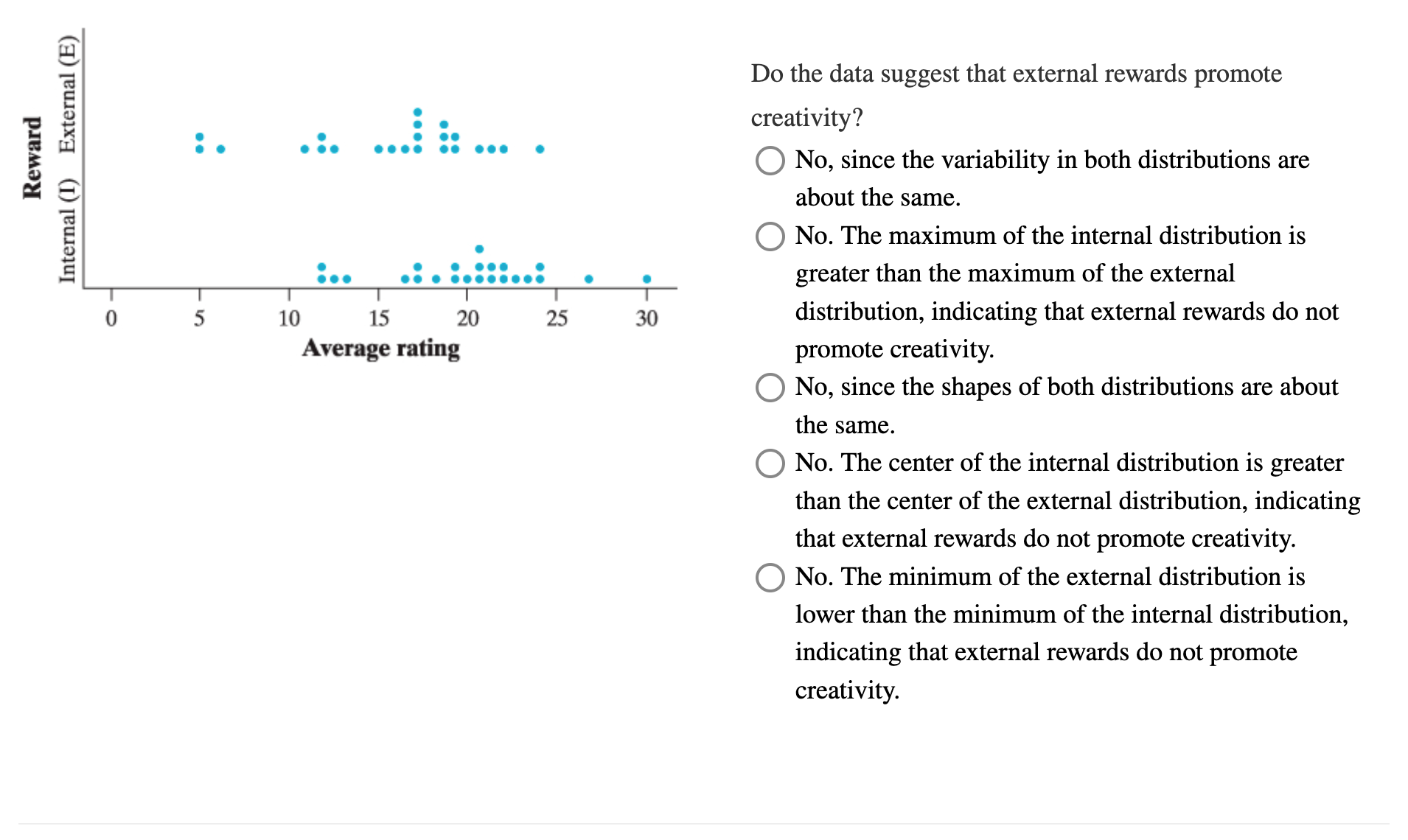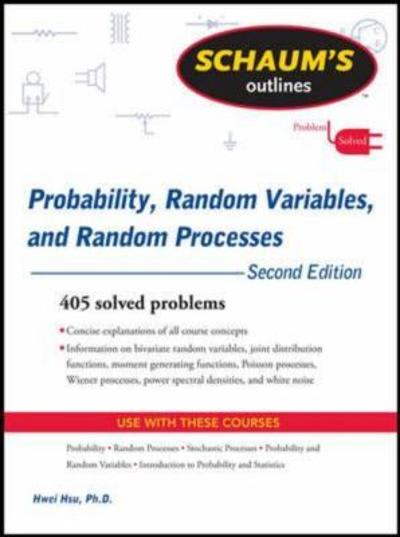Question
Teresa Amabile recruited 47 experienced creative writers who were college students and divided them at random into two groups. The students in one group were
Teresa Amabile recruited 47 experienced creative writers who were college students and divided them at random into two groups. The students in one group were given a list of statements about external reasons (E) for writing, such as public recognition, making money, or pleasing their parents. Students in the other group were given a list of statements about internal reasons (I) for writing, such as expressing yourself and enjoying wordplay. Both groups were then instructed to write a poem about laughter. Each student's poem was rated separately by 12 different poets using a creativity scale. These ratings were averaged to obtain an overall creativity score for each poem. Parallel dotplots of the two groups' creativity scores are shownhere.

Step by Step Solution
There are 3 Steps involved in it
Step: 1

Get Instant Access to Expert-Tailored Solutions
See step-by-step solutions with expert insights and AI powered tools for academic success
Step: 2

Step: 3

Ace Your Homework with AI
Get the answers you need in no time with our AI-driven, step-by-step assistance
Get Started


